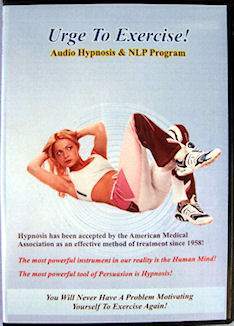
|
|
How To Supercharge Your MetabolismFor Fast Weight Loss
Click here to email this
page to a friend. |
||
|
In the most basic sense, metabolism includes all of the physical and chemical changes that occur inside the cells of the body. Most often, though, metabolism refers to the process in which the body obtains and uses energy from food, so it really does play an important role in weight gain and loss. Not
everyone is born with the same metabolism, and our rates
actually change throughout our lives, so someone who blames
their metabolism isn't necessarily making excuses. Age
affects metabolism, which will slow about 5% every 10 years
after age 40, and by gender, as males typically burn more
calories at rest than females and by the amount of muscle
mass you have (more muscle generally means a higher
metabolic rate). Heredity also impacts metabolism, not to
mention pregnancy, as well as whether a woman chooses to
breast-feed. The first rule is to eat the right foods in the correct amounts. When you skip a meal, your body goes into starvation mode, which slows metabolism to conserve calories, because it doesn't know when it will be fed again. And when the metabolism slows down, so does your weight loss. When you finally do eat after having skipped a meal, instead of burning the calories in the food you've just eaten, your body converts them to body fat to store for the next "fast." To keep your metabolism efficient, eat 4 - 6 small meals spread evenly throughout the day and try to eat close to the same times each day. Most importantly, never skip a meal. You can also step up your metabolic rate with exercise, including both aerobic workouts and weight training. Aerobic activities, such as running, biking and dancing, burn more calories in the short term while weight training will build more muscle, which boosts metabolism and burns more calories in the long term - even when you're sitting still, muscle uses more calories to function than fat. In fact, every pound of muscle burns 35 calories a day, while each pound of fat burns just 2 calories per day. Despite this, you may be surprised that the more weight you have, the faster your metabolism is likely to run. Simply put, the extra weight makes your body work harder to maintain its processes. This is partly why it's almost always easiest to lose weight when you begin diet, and gets harder as you go along because, when you are significantly overweight, your metabolism is already at a high rate, so that even a minor reduction in calories will give you an immediate weight loss. But what happens after that immediate loss, when a plateau occurs and motivation seems to go by the "weigh" side? Old cravings and compulsions can quickly return, and when they do, don't overlook a valuable resource - weight loss hypnosis. Hypnotherapy can actually retrain your unconscious mind so that, in essence, you can eliminate food cravings. When we look at why we snack, understanding why weight loss hypnosis works so well becomes clear. For most of us, snacking has become a habit - perhaps you do it automatically when you're watching TV or driving or when you're under stress. Hypnosis can actually reprogram your thoughts to break those associations, leaving you to watch TV or drive without feeling the need to eat. One of the most successful Lose weight hypnosis methods for breaking the snacking cycle is Neuro-Linguistic Programming, or NLP, which relies on negotiating with the unconscious and getting it to use the same thought processes that are creating your appetite, to eliminate your appetite. NLP takes many years of study and practical experience for a consulting hypnotist to learn and master, but positive results can come very rapidly and seem almost magical to someone who has always suffered from cravings. NLP can be just as important as exercise and motivation because, as you read above, because it can help make sure that you eat the right kinds of foods at the right times, and this is a key element to turbo-charging your metabolism. If you want to keep your metabolism at full speed and make sure that all of your exercise and hard work aren't going to waste by giving into your food temptations, weight loss hypnosis and NLP can be a secret weapon to eliminate your cravings altogether.
� 2007 By Alan B. Densky, CH. This document may NOT be re-printed. All Rights Reserved. Alan B. Densky, CH is a pioneer in the modern use of NLP and hypnotherapy for weight loss via appetite suppression and the author of NLP Programmer's Guide To Wealth � The Practical Application Of NLP To Appetite Suppression And Smoke Cessation. His site hosts a wealth of Free hypnosis resources like hypnosis videos, newsletters, and a comprehensive article library.
|
|||

